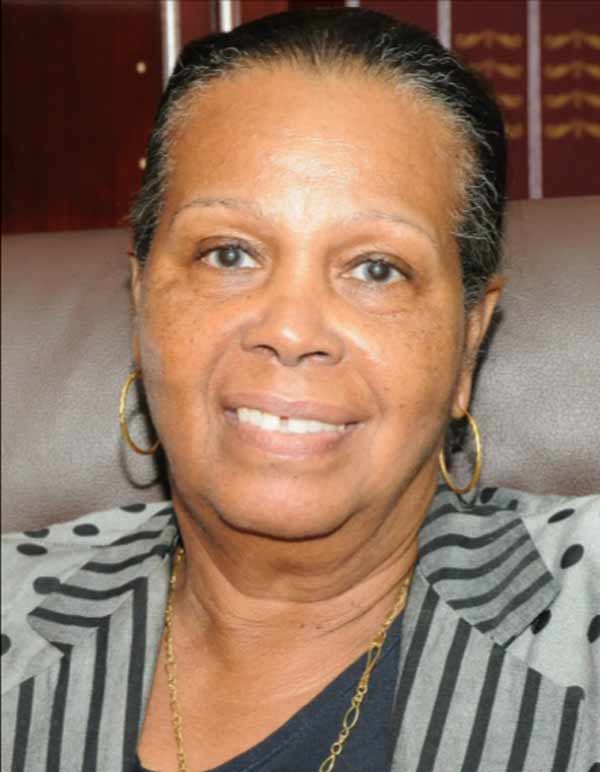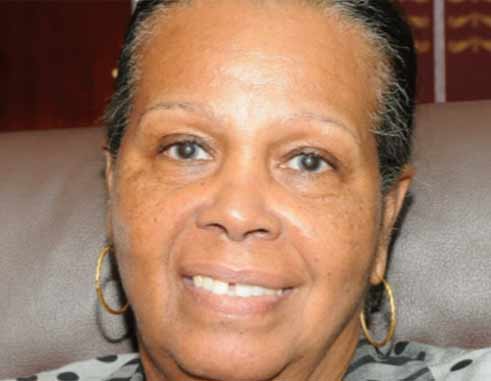Constitutional Reform Commission Says.

THE Constitutional Reform Commission says it recognizes an urgency on the part of St Lucians for special protection for the environment and the island’s cultural and historical patrimony, by restricting governments from disposing of properties of a sensitive nature.
The Commission in its report just published said St Lucians felt aggrieved about the lack of access to beaches and the apparent willingness of governments to sell or lease property which the people regarded as sacred.
The following is the second and final part of the Foreword to the Constitutional Reform Commission Report:
To a large extent, this report is an attempt to reconcile these two very different goals, and in arriving at the proposal to create a hybrid system of Government that attempts to borrow some of the best features from both models, the Commission remained conscious of one overriding thing: the important issue was not so much what system of Government was to be preferred, but whether we could push our Constitution, in new and novel directions, to make it more effective, and meet our people’s needs.
In doing so, we rejected the all or nothing approach, which would have caused us to simply substitute one foreign culture’s constitution for another, as if the process of constitution-making was a straightforward task of swapping meat for fish. At all times throughout our process, the Commission remained mindful that we could not divorce our Constitution from the political culture in which it was immersed.
Our solutions therefore had to recognise the need to balance the demand for accountability, against the realities of party politics in small island states. The status quo was unacceptable, but no less so than imposing a totally alien system on our people. Accordingly, this report contains our best prescriptions for achieving a balance between these two goals.
In addition to the submissions we received on the structure or type of Government we had, the Commission also noted several recurring themes in the course of its public consultations. As we examined the functions of the public service, we noted for example, that there appeared to be either unwillingness or an inability on the part of successive Governments, to ensure that public institutions entrusted with a public charge, did the work they were mandated to do. We acknowledged a widespread concern, both within the Commission and among the public, about the accountability and efficiency of the public service. We noted an overwhelming passion among average Saint Lucians, for an expansion in their basic human, civil and political rights. We noted a concern about the potential encroachment by the State into areas of privacy, or with respect to private property, and acknowledged a call from many quarters, to ensure our Constitution protected vulnerable groups, like women and children, from various kinds of discrimination.
The Commission recognised urgency in the calls from the public, to offer special protection to our environment, and our cultural and historical patrimony, by restricting the ability of the state to dispose of properties of a sensitive nature. In a process dedicated to reviewing constitutional rules, it was perhaps surprising how many Saint Lucians felt aggrieved about the lack of access to beaches, or the apparent willingness of Governments to sell, lease or otherwise compromise property, which Saint Lucians regarded as sacred. In fact, the Commission discerned a strong commitment on the part of average Saint Lucians to the principle of sustainable development, and recognised a growing unease or even anger, about the ability of Government to permit commercial exploitation of certain sensitive natural resources, to the detriment of future generations.
Other recurring themes were the requirements for citizenship and the possibility of regulating political parties. In respect of the first matter, there seemed to be consensus that such requirements should be strengthened, while at the same time be made flexible enough to accommodate potential political unions with other countries in the region, should this happen in the future. As regards recognition of political parties, the main preoccupation was the issue of campaign finance reform. A number of submissions were received from the public, regarding scrutiny of Government action. As a result, the Commission devoted many hours to the possible creation or strengthening of systems to scrutinise Government conduct. These proposals ran the gamut from strengthening the Public Accounts Committee and the office of the Parliamentary Commissioner, to creating new institutions, like the office of Contractor-General.
In part, because of an awareness of the lack of trust average citizens had in Government, and in part because of submissions received, the Commission also reflected on the matter of the apparent silence of our Constitution on the ethical standards required for elected officials. Over time, we came to regard this oversight as a significant problem which required addressing.
By happy coincidence also, the Commission was very fortunate to have been operational during an extended period in which a number of significant events, both locally and regionally, forced us to consider many constitutional issues, from fresh perspectives. In regional terms, we noted the results of elections in five neighbouring islands in the OECS, and the specific consequences to which these elections, gave rise.
In Antigua and Barbuda for example, we noted the High Court challenge to the results in three (3) constituencies and the subsequent High Court and Court of Appeal judgments on the matter of the late closing of polls. In St. Christopher and Nevis; we took note of Court challenges to proposed realignments of boundaries. In the Commonwealth of Dominica, elections there only added to an already ongoing debate about dual citizenship on our own shores. More recently in Grenada, we marked the potential crisis occasioned by a re-shuffling of Cabinet. In the run-up to elections in both Grenada and also St. Christopher and Nevis, we observed heightened local and regional discussion, on the issue of term limits for Prime Ministers.
Most importantly, in St. Vincent and the Grenadines, we observed with keen interest, the defeated referendum on constitutional reform, and the subsequent re-election, albeit by a smaller parliamentary margin, of the Government there. From the conduct of the referendum campaign and the subsequent results, we could not help but draw some sobering lessons. Closer to home, we were fortunate for example, to have been operational in December 2006, when general elections in Saint Lucia were held. Like all Saint Lucians, we observed with sadness, the sudden illness and subsequent passing of Sir John Compton, while in office, in 2007. We noted the process of selecting his successor, and the temporary subsequent instability in the Cabinet thereafter.
We acknowledged the public controversy over the issue of undisclosed convictions for criminal offences, of persons already elected to Parliament. Further, we could not avoid noting the Commission of Inquiry into the “Rochamel Affair”, the NCA and the West Coast Road Project, the judgements in the “Rochamel” Government guarantees, both judgments in the “Tuxedo Villas” affair, the controversy surrounding the transfer of the former Commissioner of Police, the change of the Attorney General in 2010 and the widespread public concern over the potential loss of World Heritage Status for the Pitons, due to proposed developments in the Piton Management Area.
These events helped to deeply inform our thinking about our system of Government and about our mission of constitutional reform. In the main; they reinforced the conclusions we reached after meeting with the public, or prompted us to re-evaluate our views and assumptions. Above all, they focused our thoughts on the recurring themes of reform; the need for greater accountability, for the creation of ethical rules, and the need for greater checks and balances in a responsible democracy.
All these matters and more, the Commission has diligently considered in the course of its deliberations over the last five years, and on all these matters and more, the Commission has offered some recommendations on the way forward. Yet, while the Commission has conscientiously offered a recommendation on most of the pertinent issues, either raised by the public or the Statutory Instrument that established us, it would be wrong to conclude that the report which follows, represents a detailed instruction manual to policy makers, parliamentarians and public alike, on how to create the ultimate Saint Lucian utopia.
This is not the purpose of the report, nor is it the expectation or intention of the Commission, that the recommendations contained herein, be regarded as the “right answers,” to all the profound questions the Commission was required to resolve. As one reads the report, two things should always be remembered. First, the Commission represented a microcosm of the larger Saint Lucian society, with diverging views and beliefs on the issues confronting us. As a body, the Commission comprised, among other groups or interests, Adventists and Catholics, scientists and men of faith, lawyers and laymen, women and men, public service and private sector functionaries, civil society and state officials, employers and union representatives, Opposition and Government, and young and old alike.
Second, the Statutory Instrument that established the Commission imposed on us an obligation to agree on recommendations by a two-thirds majority. This meant the Commission had to strive to reach consensus on the issues. As a result of both of these factors, the recommendations contained in the following pages, represent the fruit of a painstaking, deliberative, and consensual process, aimed at arriving at the best potential answers we could agree upon as a body. In reaching our conclusions, some inevitable compromises had to be made. In the same vein, some matters could not be agreed and no recommendations could be made, and rightly so. In an undertaking to review democratic processes, it is only right that democracy should prevail.
In the end however, we believe that any compromises arrived at, only served to strengthen and not weaken our proposals, and to make them more representative of the views of the general public. Our objective was not to make our Constitution perfect, but to make it stronger. We are confident that these recommendations help us achieve that objective. In sharing the knowledge we have acquired in the course of this process, we also fervently hope that this report, will help us to learn something about ourselves, as a society and as a country. We consign the lessons learned to the benefit of future generations.
In whatever case, no report could adequately relate all that we have learned, nor prescribe a cure for every malady that ails the Nation, and the Commission is the first to recognise that, in a country with many differing views and beliefs, not all of the recommendations we have made, will find unanimous acceptance or approval. It is one task to identify a consensus on a problem, and an altogether different task to agree on the best way to solve it. We have nonetheless made the most genuine efforts we could to do so, and are resigned to the knowledge that history will best judge the same.






